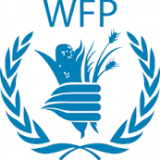BACKGROUND AND PURPOSE OF THIS ASSIGNMENT
The United Nations World Food Programme is the world’s largest humanitarian agency fighting hunger worldwide. The mission of WFP is to help the world achieve Zero Hunger in our lifetimes. Every day, WFP works worldwide to ensure that no child goes to bed hungry and that the poorest and most vulnerable, particularly women and children, can access the nutritious food they need.
2020 marks a milestone for WFP. All Country Offices now have an Executive Board-approved Country Strategic Plan (CSP) in place, fully compliant with the requirements of the Integrated Road Map (IRM). Concluding the first generation of CSPs comes at a critical time as the United Nations system moves towards the next generation of the UN Development Assistance Framework (UNDAF) – now renamed UN Sustainable Development Cooperation Framework (UNSDCF).
The new UNSDCF is expected to become the central governing and management document for all UN development activities, including related elements in CSPs. The increased authority of the UNSDCF has implications on WFP’s country strategic planning approach – going forward, all CSPs have to be aligned with the UNSDCF both in terms of content and cycle.
Country Offices need to be ready to proactively engage in the UNSDCF discussions in order to strategically position WFP and align with the UN’s broader development contribution. Starting with the CCA, this is unique opportunity to foster WFP’s role at country level and carve out the necessary space for food security and nutrition programmes. Country Offices are encouraged to designate a focal point to closely engage in the process.
KEY ACCOUNTABILITIES (not all-inclusive)
Under the direct supervision of the Deputy Country Director (Programme), the Programme Policy Officer will perform the following tasks:
- Act as the dedicated focal point for WFP’s inter-agency engagement around the new CCA/UNSDCF process. In particular, facilitate WFP’s lead role as deputy chair of the PMT and head of various UNSDCF results groups.
- Support CO management in their strategic engagement with country stakeholders before, during and after UNSDCF design. This includes updating and positioning of Zero Hunger Strategic Reviews as an interagency effort and key input to the CCA, as well as contributing to the UNSDCF design process.
- During the CCA process, ensure SDG2 elements are taken into consideration and well-captured. Leverage WFP’s body of analytics such as food security and nutrition assessments and make these available to the UNCT.
- Support early engagement with FAO, UNICEF, IFAD and other food security and nutrition actors to jointly advocate for the inclusion of SDG2 related issues in the CCA/UNSDCF, based on quality data.
- Participate and prepare WFP’s strategic engagement in UNCT, HCT, Food security cluster and other interagency fora.
- Support Country Office management in developing the second generation CSP based on the CCA and UNSDCF priorities. Assist with overall CSP design, provide drafting support and manage the CSP review and approval process in close coordination with Regional Bureau and Headquarters.
- Support the Country Office in aligning the current strategic planning cycle with the UNSDCF through a Budget Revision.
QUALIFICATIONS & EXPERIENCE REQUIRED :
Education: Advanced University Degree and/or equivalent experience with emphasis in one or more of the following disciplines: political sciences, economics, agriculture, international affairs, social sciences, development studies or a field relevant to international development or humanitarian assistance.
Experience: 6-10 years post graduate, progressively responsible international and national experience in the fields of goal oriented/strategic planning, organizational change management, inter-agency coordination, programme re-orientation, policy development, etc. Specific experience in strategy formulation, programme management and project planning in a large multicultural institution in the field or headquarters is an asset.
Knowledge & Skills: Ability to translate understanding of programme principles into relevant, effective, and context specific approaches; Ability to explain WFP projects and operations to counterparts and to communicate with Government and partners clearly and effectively, both orally and in writing; Good understanding of project lifecycle, humanitarian principles and tools, programmes and transfer modalities; General knowledge of UN system policies, rules, regulations and procedures; Strong writing, analytical and research skills; good interpersonal skills, teamwork spirit and ability to work in multicultural settings; superior cognitive capacity.
Languages: Proficiency/level C of English and French is required.
How to apply
WFP offers a competitive compensation package which will be determined by the contract type and selected candidate’s qualifications and experience.
Please visit the following websites for detailed information on working with WFP.
More Information
- Job City N'Djamena


